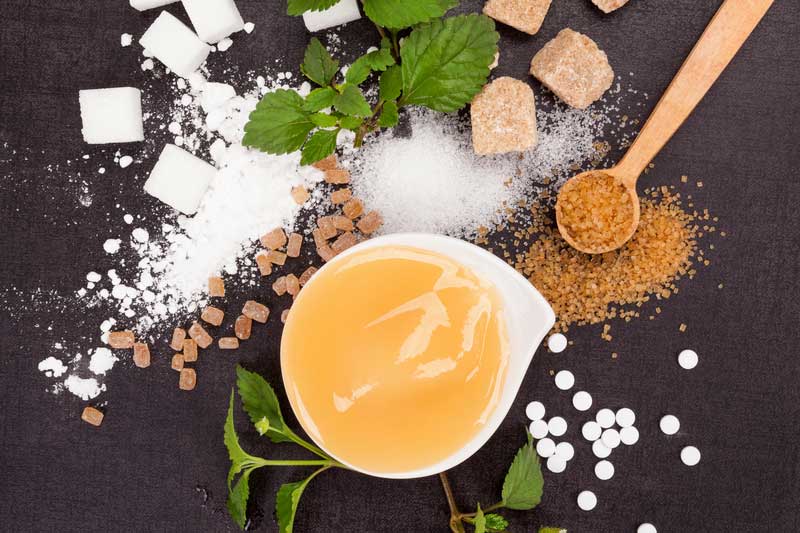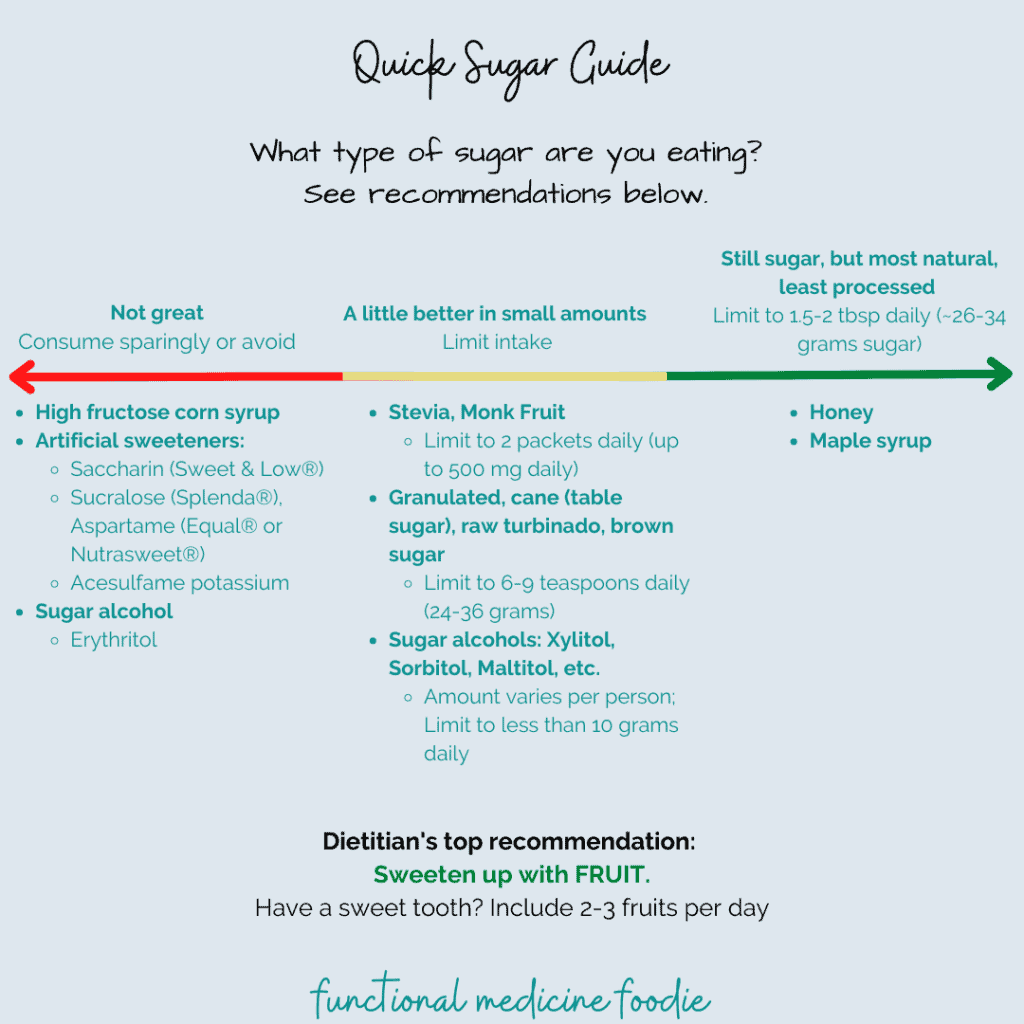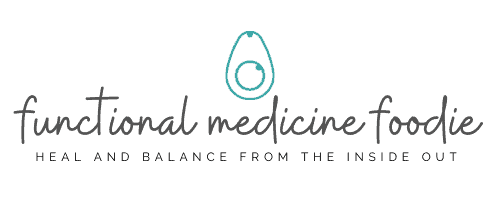Energy Drinks: the good & not-so-good
There is a plethora of caffeinated energy drinks available today. So, you might be wondering, how do you choose one? I get this question a lot. So I put together a list of energy drinks and broke it down for you.
I typically look at the following when it comes to energy drinks:
Now, let’s break down some information on caffeine and sweeteners below..
Caffeine

For the average adult, the US Food and Drug Administration (FDA) recommends no more than 400 milligrams (mg) of caffeine daily. For reference, a typical 8 oz. cup of brewed coffee contains between 80 to 100 mg of caffeine, so 400 mg is approximately equivalent to 4 to 5 cups of coffee per day.
If you have certain medical or health issues like thyroid disease, adrenal/stress issues, problems sleeping or anxiety, take a look at how much caffeine you are consuming and see if cutting back may improve health outcomes. You don’t necessarily have to fully cut it out ( I love a good cup of coffee myself!), but in some cases going from 4-5 cups to 2 cups per day can make a positive impact on your health.
📚 Related: 3 Tips for Balancing the Thyroid
Sweeteners
There are lots of sweeteners on the market today, and they go by many names including:
You might be wondering, how are they different?
Artificial sweeteners and sugar alcohols are low-calorie and tend to be much sweeter than regular sugars (about 200-800 times sweeter!) They “bypass” metabolism, which is why they are able to be labeled as zero or low-calorie sweeteners. I know being able to enjoy something sweet with no calories sounds very appealing, but the reality is: that if it sounds too good to be true, it probably is. Our liver and kidneys do most of the work when processing artificial sweeteners. In general, I recommend avoiding these types of sweeteners, and here is a quick breakdown of why:

Amount of Sweetener
The American Heart Association has established recommendations for daily added sugar consumption (this applies to regular sugars, (not including artificial or non-nutritive sweeteners):
To put this in context, one 12-oz. serving of regular cola has about 33 grams of added sugar, so this would exceed the recommended daily intake for women, and is 92% of the daily intake for men.
Use my quick sugar guide below to see where your sweetener stacks up.

Below is a list of some commercially available energy drinks with caffeine, types, and amounts of sweeteners used, and some notes on each. Hopefully, this will help you decide which beverage is right for you. I have broken them into the good and not-so-good categories. Where does your drink fit?



Resources
- American Heart Association (June 2, 2022). How much sugar is too much? heart.org
- Azad, M. B., Abou-Setta, A. M., Chauhan, B. F., Rabbani, R., Lys, J., Copstein, L., Mann, A., Jeyaraman, M. M., Reid, A. E., Fiander, M., MacKay, D. S., McGavock, J., Wicklow, B., & Zarychanski, R. (2017). Nonnutritive sweeteners and cardiometabolic health: a systematic review and meta-analysis of randomized controlled trials and prospective cohort studies. CMAJ, 189(28), E929–E939. https://doi.org/10.1503/cmaj.161390.
- Center for Food Safety and Applied Nutrition. (February 8, 2018). Additional information about high-intensity sweeteners. U.S. Food and Drug Administration. www.fda.gov.
- Doctrow, B. (2023, March 28). Erythritol and cardiovascular events. National Institutes of Health. Nih.gov. NIH Erythritol
- Harvard School of Public Health (April 4, 2023). Low-calorie sweeteners. harvard.edu
- Mazi, T. A., & Stanhope, K. L. (2023). Erythritol: An In-Depth Discussion of Its Potential to Be a Beneficial Dietary Component. Nutrients, 15(1), 204. https://doi.org/10.3390/nu15010204
- Pang, M. D., Goossens, G. H., & Blaak, E. E. (2021). The Impact of Artificial Sweeteners on Body Weight Control and Glucose Homeostasis. Frontiers in Nutrition, 7, 598340. https://doi.org/10.3389/fnut.2020.598340.
- U.S. Food and Drug Administration. (n.d.). Spilling the beans: How much caffeine is too much? Fda.gov. US FDA
- University of Alabama at Birmingham, School of Health Professions. (n.d.). Artificial Sweeteners. UAB.edu
- Witkowski, M., Nemet, I., Alamri, H., Wilcox, J., Gupta, N., Nimer, N., Haghikia, A., Li, X. S., Wu, Y., Saha, P. P., Demuth, I., König, M., Steinhagen-Thiessen, E., Cajka, T., Fiehn, O., Landmesser, U., Tang, W. H. W., & Hazen, S. L. (2023). The artificial sweetener erythritol and cardiovascular event risk. Nature Medicine, 29(3), 710–718. https://doi.org/10.1038/s41591-023-02223-9.
